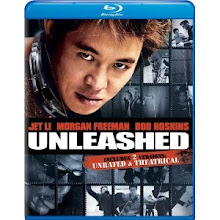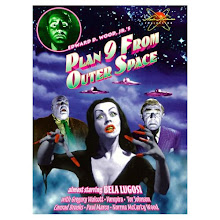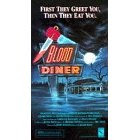by Jason Pyles
Perhaps it’s a little hyperbolic to write this, but Duncan Jones’ “Moon” is something like the cinematic equivalent — as far as technological feats go — to landing on the Moon. Indeed, “Moon” is some kind of subtle masterpiece.
Not to sound elitist (because I only know a little more about the cinema than the average person), but “Moon” is the kind of film that only those who are knowledgeable about filmmaking will truly appreciate. But then most masterpieces are lost on the ignorant.
And my last preliminary praise is that “Moon” is one of those proud little possessions that we film buffs who love to be in the know about obscure filmic treasures (like “Man on Wire” and “Touching the Void”) can keep in our back pockets for those occasions when our friends ask us for a really good movie recommendation.
The Premise (no spoilers): “Moon” is a science-fiction mystery set entirely on the surface of Earth’s Moon. It’s about a corporate astronaut (played by Sam Rockwell) who is finishing up a three-year stint as the solitary worker at a Moon base where he oversees the automated harvesting of Helium-3 from lunar rock in order to provide Earth with pollution-free power from nuclear fusion ... or something like that. Anyway, as he is only two weeks away from going home, bizarre and unsettling occurrences ensue.
The first reason “Moon” is great is it was made on a $5 million budget, which is small even when compared to “District 9,” which was made with $30 million (and people still gasped at how good that looked). Well, despite — or perhaps because of — its small budget, “Moon” looks exceptional and quite convincing. It is full of filmic magic tricks and cinematic sleight of hand, from the Moon base to the lunar landscape to some real showing off with its actor, Sam Rockwell.
Speaking of Rockwell, that leads me to the next reason of excellence: “Moon” is primarily a one-man show. Rockwell is, for all intents and purposes, the principle principal (yes, both words) actor. So, you’ve got the same challenging scenario found in “Cast Away,” but handled more brilliantly. (It’s tough to write a screenplay with one actor. That gets really boring for the audience really fast. And though Tom Hanks was excellent in “Cast Away,” the writer, William Broyles Jr. (who is no slouch: “Apollo 13,” “Planet of the Apes,” “Jarhead,” “Flags of Our Fathers”) still had to conjure “Wilson” the volleyball for Hanks to speak to. And though “Moon” ventures into the fantastical associated with science-fiction, it employs “GERTY” (voiced by Kevin Spacey) for companionship. All that aside, Rockwell’s physical delivery of his movements and so forth had to be very precise or “Moon” would have crumbled. (I spotted only one instance of an eye-line match that was askew.)
“Moon” is also exceptional because it is intelligent. It’s not big, dumb fun like “Independence Day” or “Armageddon,” rather, it’s in the same vein and akin to “2001: A Space Odyssey,” except with much more dialogue. “Moon” doesn’t resort to the cliched or commonplace, such as explosions and gunplay and so forth.
The tone of “Moon” is mostly creepy and unsettling, and this is enhanced by its haunting and beautiful score. The film’s primary theme is, in this musician’s opinion, also a masterpiece. It seems to be the precise score that this film requires. And though the tone of the film is usually disturbing, it remarkably, simultaneously borders on comedic. I will discuss spoilers below, but what happens in this film and a few of its scenes could have easily been farcical in the hands of a lesser director, and humorous in the hands of someone like Mel Brooks. Yet “Moon” remains troubling. (And by the way, the director Duncan Jones, who is also responsible for this film’s original story, is the son of David Bowie.) Nathan Parker wrote the screenplay.
And for my final thoughts (finally), I’m going to proceed into spoiler territory, so if you haven’t seen “Moon” yet, trust me and stop reading now.
We come to discover, fairly early in the film that Sam sees a duplicate of himself. And at first he sort of shrugs this development off, which is understandable because he had been seeing other peculiar “illusions” of people around the base. But that still doesn’t explain why the “newer Sam" clone didn’t have an adverse reaction. He was much fresher. Can anyone answer that? I loved how “Moon” draws in the concept of a corporation (or mankind, in general) using cloning — as it inevitably will — in morally questionable ways to benefit the greater good of the whole “back home.” Clones probably would (or are?) considered second-class citizens, devoid of the same rights as the original source person. How fascinating and horrifying it is to think of the Sams’ nightmarish realization: We all would surely think of ourselves as “Jason No. 1” or “Andy No. 1.” We wouldn’t consider our real feelings and memories as some programmed or artificially installed human characteristics. We’d think we were the original, even if we were the 100th version of that person. And then, once you realized you weren’t No. 1, you could be noble and concede to the rights of your source host, giving him what rightfully belongs to him. But what about those feelings of loss and emptiness you had for your family that are just as real as they are for person No. 1? Heartbreaking. Clones, it seems to me, morally speaking, should have the same rights as their original source inspiration. But then, I suppose for that to be possible, we’d have to clone all their family members, too.






























































No comments:
Post a Comment